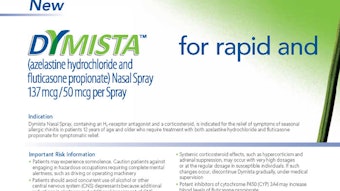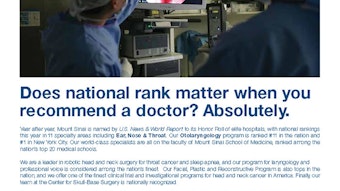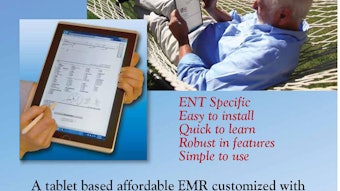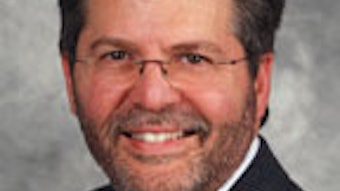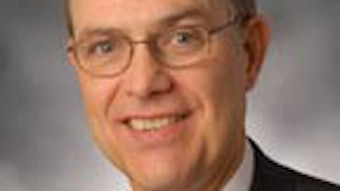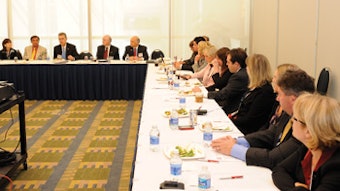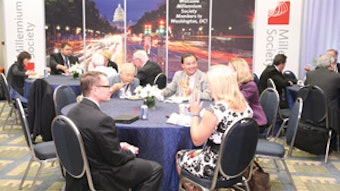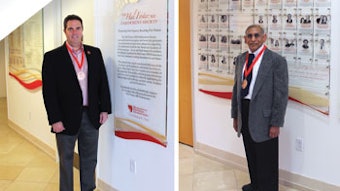Summer in Libya: A Chance to Help Rebuild
Ilaaf Darrat, MD, Ford Health System, Detroit, MI February 17, 2011, is not a particularly important date to most people in the United States. For Libyans, this date signifies freedom from 42 years of dictatorship and oppression, as the start of the uprising that finally toppled the Gaddafi regime. However, for many Libyans, the revolution started long before February 17 of last year. My own family actively opposed the regime for decades, being forced to live in exile for more than 30 years. Despite the many years we spent away from our home, we have always believed the regime’s time would come and we should take advantage of the opportunities we have in the United States to prepare ourselves to one day contribute to the betterment of our homeland. Well, that day finally came, and I was grateful to have the opportunity to do my part. The revolution was over, the regime had collapsed, and Libya’s first free elections in more than four decades took place—a happy occasion marked by huge celebrations in the streets. And I was there to witness it and to be a part of the change for which everyone was hoping. With the help of Khalid Eljallah, MD, a Canadian-trained Libyan otolaryngologist, I volunteered at El Khadra Hospital in Tripoli, Libya, in July. El Khadra is one of three government-run hospitals in Tripoli that provide medical care at no cost to Libyan citizens. I worked with a group of eager residents who were interested in increasing their knowledge base and skill level. I covered the clinic, gave grand rounds, and taught in the operative theater. In the clinic, we discussed the clinical scenarios, and we saw dozens of patients in the mornings. I was impressed by the knowledge of the trainees, who wanted to know what treatments U.S. physicians typically administered for specific diagnoses. We realized that there were more similarities in treatments than differences. The evident difference was that despite the trainees’ sound medical knowledge, their training in the operative theater was limited. Even the most senior residents (including one who had been in training for more than eight years) did not possess the requisite skills to perform a parotidectomy or a FESS using the microdebrider. Only Dr. Eljallah, the ENT consultant at El Khadra Hospital, performed those cases. There is a huge demand for training opportunities to really bring out the residents’ potential and commitment to learning. Working with the residents was a real joy. You could feel their excitement and see their hopes for the future. They were hungry for more training, particularly from overseas physicians. However, they face many challenges practicing medicine in Libya, including a general lack of confidence in physicians trained there. Among the general population, many do not believe doctors in Libya can deal with complicated medical cases. As a result, many Libyans will strain their limited budgets to travel to neighboring countries for medical care. Despite having more talent and skill than is often assumed of them, many residents are hoping to “match” in residencies overseas to strengthen the reputation of Libyan doctors and, more importantly, to develop themselves and provide the world-class care their fellow citizens need. Many other exiles, like me, have returned to Libya to develop relationships with physicians there, to treat patients in the country, and to encourage young residents to continue to dream big and work hard. I plan to return to Libya at least once a year to continue to educate and train Libya’s future otolaryngologists. There is much work to be done, but we are hopeful and ready for the task.
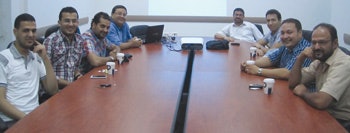 Members of the El Khadra ENT Department (r. to l.): Dr. Nureddin Ben Sabaan; Dr. Abdulmotaleb Shamam; Dr. Hiethem Khlatt; Mr. Aziz Abushaala FRCS (Gl.), ORL-HN Surgeon; Dr. Khaled Eljallah, MD, FRCSC, Head of ENT Department El Khadra Hospital; Dr. Murad Elhuderi; Dr. Seraj Oun; and Dr. Khaled Mohsen.
Members of the El Khadra ENT Department (r. to l.): Dr. Nureddin Ben Sabaan; Dr. Abdulmotaleb Shamam; Dr. Hiethem Khlatt; Mr. Aziz Abushaala FRCS (Gl.), ORL-HN Surgeon; Dr. Khaled Eljallah, MD, FRCSC, Head of ENT Department El Khadra Hospital; Dr. Murad Elhuderi; Dr. Seraj Oun; and Dr. Khaled Mohsen.Ilaaf Darrat, MD, Ford Health System, Detroit, MI
February 17, 2011, is not a particularly important date to most people in the United States. For Libyans, this date signifies freedom from 42 years of dictatorship and oppression, as the start of the uprising that finally toppled the Gaddafi regime.
However, for many Libyans, the revolution started long before February 17 of last year. My own family actively opposed the regime for decades, being forced to live in exile for more than 30 years. Despite the many years we spent away from our home, we have always believed the regime’s time would come and we should take advantage of the opportunities we have in the United States to prepare ourselves to one day contribute to the betterment of our homeland.
Well, that day finally came, and I was grateful to have the opportunity to do my part. The revolution was over, the regime had collapsed, and Libya’s first free elections in more than four decades took place—a happy occasion marked by huge celebrations in the streets.
And I was there to witness it and to be a part of the change for which everyone was hoping. With the help of Khalid Eljallah, MD, a Canadian-trained Libyan otolaryngologist, I volunteered at El Khadra Hospital in Tripoli, Libya, in July. El Khadra is one of three government-run hospitals in Tripoli that provide medical care at no cost to Libyan citizens.
I worked with a group of eager residents who were interested in increasing their knowledge base and skill level. I covered the clinic, gave grand rounds, and taught in the operative theater. In the clinic, we discussed the clinical scenarios, and we saw dozens of patients in the mornings. I was impressed by the knowledge of the trainees, who wanted to know what treatments U.S. physicians typically administered for specific diagnoses. We realized that there were more similarities in treatments than differences.
The evident difference was that despite the trainees’ sound medical knowledge, their training in the operative theater was limited. Even the most senior residents (including one who had been in training for more than eight years) did not possess the requisite skills to perform a parotidectomy or a FESS using the microdebrider. Only Dr. Eljallah, the ENT consultant at El Khadra Hospital, performed those cases. There is a huge demand for training opportunities to really bring out the residents’ potential and commitment to learning.
Working with the residents was a real joy. You could feel their excitement and see their hopes for the future. They were hungry for more training, particularly from overseas physicians. However, they face many challenges practicing medicine in Libya, including a general lack of confidence in physicians trained there. Among the general population, many do not believe doctors in Libya can deal with complicated medical cases. As a result, many Libyans will strain their limited budgets to travel to neighboring countries for medical care.
Despite having more talent and skill than is often assumed of them, many residents are hoping to “match” in residencies overseas to strengthen the reputation of Libyan doctors and, more importantly, to develop themselves and provide the world-class care their fellow citizens need.
Many other exiles, like me, have returned to Libya to develop relationships with physicians there, to treat patients in the country, and to encourage young residents to continue to dream big and work hard. I plan to return to Libya at least once a year to continue to educate and train Libya’s future otolaryngologists. There is much work to be done, but we are hopeful and ready for the task.
